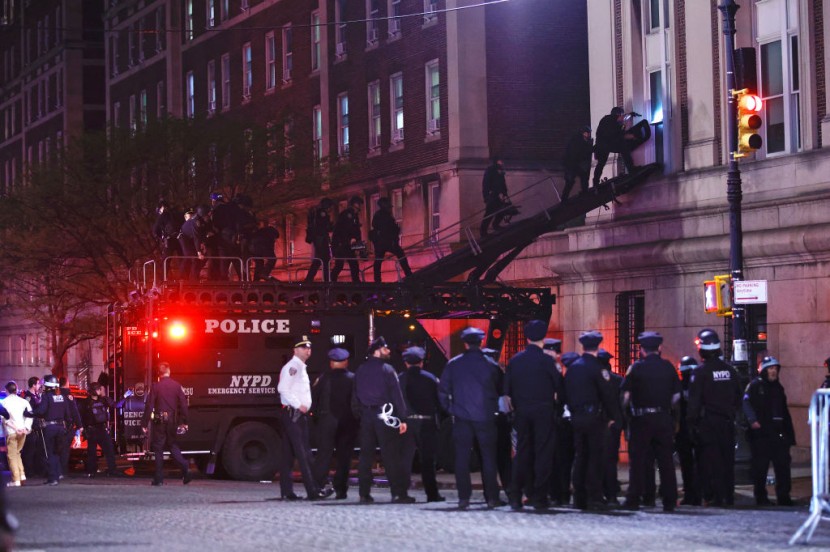
The NYPD has quietly dropped charges against pro-Palestinian demonstrators that had taken over university campuses amid heightening tensions over the Israel-Gaza war.
While it's unclear as to how many summonses were vacated over the past several weeks, it's most likely in the hundreds.
Several demonstrators who spoke to THE CITY said their attorney informed them their charges had been waived, including those arrested at Columbia University on April 18, at New York University on April 22, at Columbia again on April 30, and at the City University of New York's City College that same night.
Despite the move, another 90 people facing misdemeanor and felony charges arrested at Columbia and City College inside barricaded buildings still have their cases pending before the courts.
Between April 18 and May 8, the NYPD arrested more than 600 people involved in demonstrations in and around college campuses in New York City opposing Israel's war in Gaza.
Students and faculty arrested at Columbia and City College on April 22 began to get word that their summonses had been dropped through attorneys this week, according to THE CITY.
A number of those who had been arrested in earlier raids at Columbia on April 18 and NYU on April 22 received letters from the state court system and through lawyers earlier this month.
Zach Samalin, an assistant professor of English who was arrested and charged with trespassing when visiting the student encampment on the evening of April, said,
"No charges stuck, so it really does just seem like NYU was using the NYPD as a way to intimidate protesters."
"That's been sort of vindicating," he added.
Ali Wong, a 38-year-old student organizer, was among 60 demonstrators arrested the night of April 13 on Columbia's campus who had linked arms outside Hamilton Hall to block police from entering the barricaded building demonstrators had taken over.
While Wong is relieved that the trespassing charge against her is no longer pending, it makes her feel even more suspicious about Columbia's justification for deploying police in the first place.
"If there was legitimate concern, why not take this to court?" she asked.
"Scrutinize it in a way that any alleged crime deserves to be scrutinized."
© 2026 HNGN, All rights reserved. Do not reproduce without permission.








